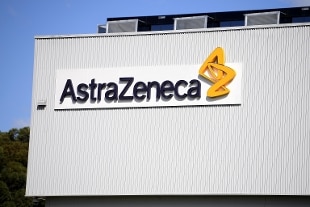EU also signs a contract with Moderna on anti Covid vaccines
Hope: "Vaccine plan on December 2. The purchase will be centralized"
Astra-Zeneca vaccine: "Strong immune response in the elderly"
The role of Irbm di Pomezia in the AstraZeneca vaccine
Share
November 26, 2020 The anti Covid vaccine candidate developed by the University of Oxford, in collaboration among others with the Irbm of Pomezia. it requires "supplementary" studies. Pascal Soriot, number one of the pharmaceutical company AstraZeneca, partner of the project, admitted this today, in an interview with Bloomberg, a few days after the publication of the first results on the experiment that indicated an efficacy of the prototype between 62 and 90% depending on the types of dosage (about 70% average). Those results had subsequently been the subject of requests for clarification and doubts on some data in the international scientific community.
The AstraZeneca vaccine against Covid therefore requires "further analysis". The head of the British drug company AstraZeneca admitted that more research is needed on its Covid-19 vaccine after doubts about the serum's efficacy emerged due to the way the clinical tests are administered. "Now that we've found what appears to be better efficacy, we need to validate it, so we need to do a further study," chief executive Pascal Soriot told Bloomberg in an interview.
90% efficacy thanks to an "error"
Doubts related to the vaccine for Covid-19 developed by the University of Oxford and AstraZeneca are growing, after the admission of an "error" in the dosage of the administrations during clinical tests, thanks to which an efficacy of the product up to 90% has been recorded.
The mistake consisted in the fact that a small tranche of the volunteers (2,300) received, without having planned it, the first half dose and the second, in the recall the following month, whole; the other part of the volunteers (8,900 people) instead received both doses in full. The effectiveness of the product on the first group was 90% and in the second of 62%.
As the Financial Times writes, after a piece yesterday also in the New York Times with the same questions, "the discovery of the effectiveness of the vaccine thus appears to be a fortuitous turning point".
According to Moncef Slaoui, head of Operation Warp Speed - the American federal program for the development of vaccines - the group that received the half dose first and then the full one was made up of people under 55, a category lower risk of developing the Covid. AstraZeneca and Oxford did not disclose the age ranges of the volunteer samples.
According to some analysts, such as Geoffrey Porges of Svb Leerink, the fact that AstraZeneca "tried to embellish its results" by pointing out the vaccine's greater efficacy on "a relatively small group of subjects under study" reduces the likelihood that US authorities will give it the green light for emergency use, given that the optimal dose of the vaccine was administered to only 2,300 people.
Scientists said they still can't fully explain why the half dose provided better protection, but said it could be that it triggers the immune system differently. It is possible that giving a small dose of vaccine to start and then a larger one is a better way to put the immune system into action, explained Sarah Gilbert, a professor at the University of Oxford, engaged in the research, remembering however that there are no history of administration of other vaccines in this manner. It is also not yet clear whether the difference is in the quality or quantity of the immune response.
In addition to the dosage, differences also emerged in the protocols of the trials conducted in different countries, for example between the United Kingdom and Brazil, thus making it even more difficult to think of combining the various data into a single and reliable result on the effectiveness of the vaccine.
AstraZeneca defended the accuracy of the trials "conducted to the highest standards," a spokesperson for the company said, announcing that more data will be collected and further analysis will be carried out to determine vaccine efficacy and coverage.

